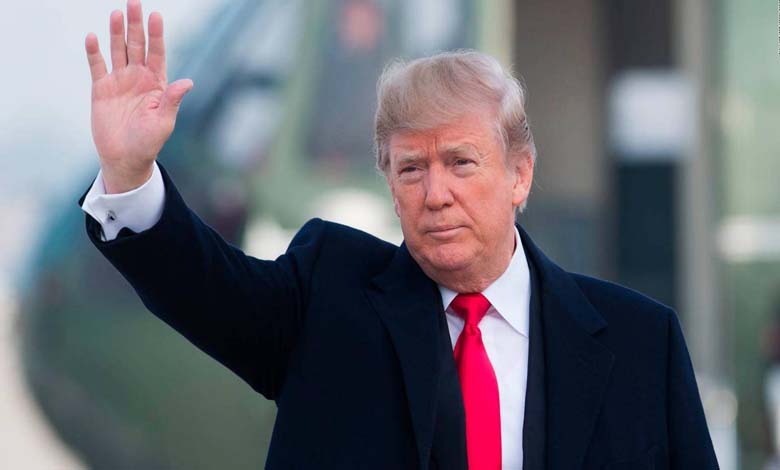A 40-Year-Old Secret… Was Trump a KGB Spy?

Alnur Musayev, former chairman of Kazakhstan’s National Security Committee, has claimed that U.S. President Donald Trump was an agent of the Soviet intelligence service for 40 years.
The British newspaper Mirror reported Musayev’s claim that Trump was among the Western businessmen targeted and recruited by the KGB when he first visited Moscow in 1987 as a real estate developer.
-
When the “Riviera” Clashes with Resilience: Trump’s Vision for Gaza Between Benefit and Identity
-
Billionaire, Party, and Politics… Trump’s Shadow Appears in Australia
At the time, Trump was a major figure in New York’s real estate market and had traveled to the Soviet Union to explore the possibility of building a hotel in Moscow.
Musayev provided no direct evidence to support his claim, but his statements have fueled further speculation about Trump’s ties to Russia, which date back to his first visit to Moscow 38 years ago.
He noted that Soviet officials at the time facilitated Trump’s visit, raising questions among intelligence analysts about whether the trip was merely a business opportunity or something more controversial.
-
Who is the President: Trump or Musk? A Newspaper Unveils a Surprise
-
Trump’s Gaza Storm: Arab Initiative Seeks an Alternative to Halt Forced Displacement
According to the newspaper, the KGB was known at the time for conducting targeted recruitment operations on prominent Western figures, as documented in former intelligence reports.
Records from that period show that the KGB focused on attracting “high-profile Western figures” by offering financial incentives or investment opportunities, sparking speculation about whether Trump was subjected to this type of recruitment.
-
“You’re Fired, Joe”: Trump shuts the “Vault of Secrets” on Biden
-
Trump: Palestinians Have No Choice but to Leave Gaza
Previous Allegations About Trump‘s Ties to Russia
This is not the first time that suspicions have been raised about Trump’s connections to Russia.
The British newspaper The Guardian previously reported claims by former Russian spy Yuri Shvets, who was sent to Washington in the 1980s under journalistic cover. He alleged that Trump’s services to Moscow were comparable to those of the British spy ring Cambridge Five, which provided secrets to the Kremlin during World War II and the early Cold War.
Shvets worked for Soviet intelligence while posing as a correspondent for the Russian news agency TASS in Washington during the 1980s. He later immigrated to the U.S. and obtained American citizenship in 1993.
-
Trump Promotes a New Nuclear Deal with Iran to Avoid Military Option
-
Trump Reinstates Cuba on ‘Terrorism Sponsors’ List… Cuban President Responds
In a phone interview with The Guardian from his home in Virginia, Shvets (71) described Trump’s dealings with Russian intelligence as a “classic recruitment model,” where individuals are targeted as young professionals and later rise to influential positions.
Shvets claimed that Trump first appeared on Russian intelligence’s radar in 1977 when he married Ivana Zelníčková, a Czech model. This made him a target for a recruitment operation overseen by Czechoslovakia’s intelligence service in coordination with the KGB.
Three years later, Trump launched his first major real estate project, the Grand Hyatt New York, near Grand Central Station.
-
The Capitol Case: Trump’s Fate if He Was Not Elected President
-
Why does Trump want to annex Greenland? The full story
To furnish his hotel, Trump purchased 200 televisions from Simion Kislin, a Soviet émigré who co-owned an electronics company in New York.
According to Shvets, this company was controlled by Soviet intelligence, and its director, Kislin, played a key role in recruiting Trump as a promising young businessman.
Shvets claims that Trump and Ivana visited Moscow for the first time in 1987, where they met with Russian intelligence agents who presented him with the KGB’s vision, flattered him, and encouraged him to enter politics.
-
The Telegraph: Trump’s Ban on the Muslim Brotherhood Is a Once-in-a-Generation Opportunity
-
Muslim Brotherhood: Scaling Back Activities with Trump’s Arrival to Avoid Terrorist Label
He added that Soviet intelligence had extensively studied Trump’s personality before the visit and concluded that he was “intellectually and psychologically weak and easily influenced by flattery.”
The KGB allegedly exploited these traits, convincing Trump that they deeply admired him, that he should become President of the United States one day, and that he had the power to change the world.
-
Trump’s Return Pushes European Powers to Demand Increased Pressure on Iran
-
Trump’s Rise Prompts Iran to Consider the Consequences of a Potential Attack on Israel
-
Gaza, Lebanon, Iran… What Will Trump Do?
-
The Potential Return of Trump to Power: A Nightmare for Iran











